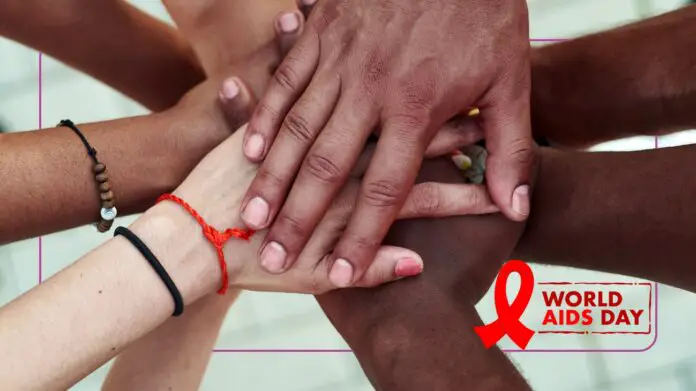In recognition of World AIDS Day, on Sunday,1 December, NHS Greater Manchester has committed to end all new transmissions of HIV by 2030, by investing over half a million pounds in VCFSE-led (Voluntary, Community, Faith and Social Enterprise) initiatives aimed at reducing HIV transmission.
The £526,000 investment in VCFSE work is part of a comprehensive programme to support the region’s Fast-Track Cities initiative, which aims to eliminate all new HIV transmissions by 2030.
An estimated 6,800 people are living with HIV in Greater Manchester, with around 5% of those unaware of their HIV status. The region’s proportion of cases is among the highest in the country, with over 0.5% of the population living with HIV. Unfortunately more than a third (36%) of these HIV diagnoses during 2021-2023, were made at a late stage. A late diagnosis substantially increases the impact of HIV on people’s lives, along with the risk of onward transmission and the impact on the NHS.
Despite these challenges, Greater Manchester has made significant progress, achieving the global standard for people to know their HIV status, access treatment and understand how much of the virus is in their bodies in order to stay healthy
There has been a 52% reduction in new HIV diagnoses in Greater Manchester from 2014 to 2023 and the percentage of people diagnosed late has started to decline.
A number of key advancements have been made within recent years on HIV transmissions, diagnosis, and care across Greater Manchester.Opt-out HIV testing is currently taking place in emergency departments in Manchester and Salford. This means that anyone aged 16+ attending participating hospitals, who is having a blood test for any other reason, is tested for a blood-borne virus, such as HIV, hepatitis B and hepatitis C, unless they opt-out. It helps to diagnose undetected cases and normalises testing.
This programme is being rolled out to other hospitals in the region next year.
This weekend, Greater Manchester will come together to remember those who have lost their lives to AIDS and show solidarity with those living with HIV. The annual World AIDS Day vigil on will be held at Sackville Gardens, Sackville Street, Manchester M1 3WA on Sunday, 1 December, at 6pm.
Dr Manisha Kumar, chief medical officer at NHS Greater Manchester, said: “World AIDS Day serves as an important reminder of the responsibility we have to end new HIV transmissions by 2030 and our pledge to do so. The progress we have made so far is a testament to the power of working together and community-driven efforts.
“With increased investment and a renewed focus on prevention, testing and support, we are determined to reduce the stigma and ensure everyone living with HIV has access to the care and treatment they deserve. We will continue to work towards a Greater Manchester where no one lives with the fear of HIV and where every individual can lead a healthy, fulfilling life.”







